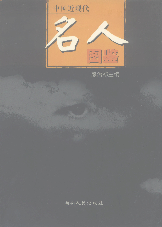
主要责任者: 熊治祁
责任方式: 主编
出版者: 湖南人民出版社
出版地: 长沙
页码: 1-233
开本: 16
中图分类号: K820.5-64
装帧: 简
语种:中
定价:88.00
出版时间:2002-04
丛书多卷书否:否
书目简介:本册工具书共收录712条词条。
被引频次:11
| 词条 | 中国近现代名人图鉴 |
| 类别 | 中文百科知识 |
| 释义 |  主要责任者: 熊治祁 责任方式: 主编 出版者: 湖南人民出版社 出版地: 长沙 页码: 1-233 开本: 16 中图分类号: K820.5-64 装帧: 简 语种:中 定价:88.00 出版时间:2002-04 丛书多卷书否:否 书目简介:本册工具书共收录712条词条。 被引频次:11 |
| 随便看 |
开放百科全书收录579518条英语、德语、日语等多语种百科知识,基本涵盖了大多数领域的百科知识,是一部内容自由、开放的电子版国际百科全书。